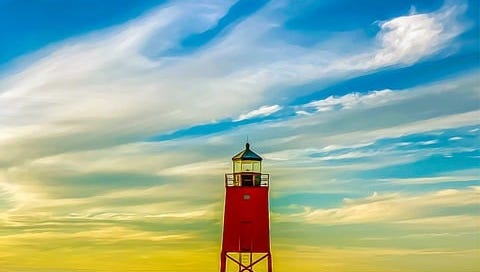I moved to Michigan in the early 80s to do a PhD in English partly because my college mentor had done her own doctorate here and her recommendation carried enough weight to get me financial aid from Michigan State University. It also helped that I was already a published and prize-winning fiction writer, and one of my other letters of rec was from the famous critic Irving Howe.
MSU had one of the strongest American Studies programs in the country at the time, and the intersection of history and literature had fascinated me since high school. But that’s only part of the story.
I needed distance from my complex, complicated family: I needed to breathe. After two and a half years in western Massachusetts working on an MFA, I also found New York surprisingly claustrophobic even though I had so many friends there and I loved the rich cultural life.
When I arrived, I didn’t expect to end up spending more than half my life in Michigan or feel that Michigan was my home, but that’s what happened. I was curious about the state and within weeks after settling in, I was crossing the majestic Mackinac Bridge to the Upper Peninsula. The lakes were covered in ice, the sun was setting, and the vast glistening landscape slowly turned orange and then red. It was magical and intoxicating.
Over the next few years while working on my degree, I went camping around the state, surprising native Michiganders with how much exploration I was doing and also by my attitude. “I love it here,” was my refrain and people seemed almost wary: I was from the East Coast, surely I was being sarcastic. After all, sarcasm is a second language in New York, right?
I remember more than one conversation about Lake Michigan and how enjoyable I found the beaches, the state parks, the small towns along the lake with their striking lighthouses and what felt like a touch of New England. I’d get the self-deprecating comment, “Well, it’s not the ocean.” That was fine by me since I couldn’t see the other side, plus there are no sharks or jellyfish.
I discovered quite quickly that leaving my city of birth was the catalyst for writing of all kinds, especially short stories about Holocaust survivors and their children, the so-called Second Generation. The distance from home and family was explosively productive for me and I re-started my writing career. I’d won a writing prize and been published in a major national magazine but that breakthrough was followed by five solid years of rejections. In Michigan, however, I felt freer than ever, was loving my travels around the state, my trips to Chicago, seeing first-class theater in Stratford, Ontario—and life seemed to open up in new ways.
Michigan also inspired my ten-book Nick Hoffman mystery series which got me reviewed in The New York Times Book Review. The Washington Post raved about my stand-alone novel The German Money where the narrator shares my love of the state’s natural beauty. I made friends who were writers but mostly friends who weren’t writers and that’s inspired and sustained me too. Because it means I’m not constantly talking shop, and we all need a break from our obsession so that we can stay sane—or close to it, anyway. Because Henry James was right when he called it “the madness of art.”
Lev Raphael's most recent mystery is Department of Death, which Publishers Weekly called "immensely enjoyable" in a starred review. He’s taught creative writing at Michigan State University and Regents College in London, and has been invited to teach at Leipzig University in Germany. Lev currently coaches, mentors, and edits writers at writewithoutborders.com.
Image by WOKANDAPIX from Pixabay





Yes, it is paradise here in Michigan. My permanent writing retreat. But let's keep it a secret please.
Happy Thanksgiving!